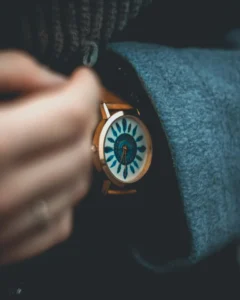
Life took a sharp turn for me when my father remarried. The adjustment was anything but smooth. My stepmother Charlotte brought her three children into our home: Penny, who was 16, Peter, 11, and William, 10. Their arrival turned my world upside down. I had always valued my personal space, but now, I found myself squeezed into a corner of my own home.
Our house, with its three bedrooms, had previously allowed each of us our own private space. My father and I had our separate rooms, each with its own bathroom, and a smaller room served as his study. With the new arrangement, Penny moved into my room, forcing me to share a cramped space with Peter and William. As a result, I had to relocate my cherished belongings, including my telescope and books, to the basement.
The invasion of my space wasn’t limited to the physical realm. My step-siblings had no sense of boundaries. They rummaged through my things and, most devastatingly, they destroyed my Xbox. But the final straw came when my mother’s watch went missing. This watch wasn’t just a timepiece; it was a precious memento from my mother, who had passed away from cancer. It was all I had left to remember her by.

A wristwatch | Source: Pexels
After searching every nook and cranny in our cramped space, I finally went to the basement, hoping the watch had accidentally been brought down while they played. My heart sank when I found it lying on the floor, shattered. The glass was cracked, and the hands were frozen in place. The realization that my precious memory had been ruined hit me hard. I was heartbroken and furious.
I went upstairs to confront Penny, who was lounging in the living room, engrossed in her phone. “Penny, I need to talk to you,” I said firmly. She glanced up, her annoyance palpable. When I showed her the broken watch and explained its significance, she shrugged it off. “So what? It’s just a watch,” she said dismissively. “It was a gift from my mother!” I pleaded, but her indifference was crushing.
Feeling isolated and unheard, I retreated to my room, clutching the broken watch. The sense of loss and displacement was overwhelming. I missed my mother intensely, and the house felt increasingly alien. I felt like an outsider in my own home, pushed aside and disrespected.
I decided I had to speak to my father and Charlotte about this. I approached them one evening, my voice trembling as I tried to explain the situation. “Dad, Charlotte, we need to talk,” I said. I told them about Peter and William going through my things and how they had damaged my watch. I hoped they would understand the gravity of the situation, but their response was disheartening.
Dad sighed, “Nathan, I know this transition is tough. We all have to make sacrifices.” Charlotte added, “They’re just kids. They don’t understand boundaries like you do. You need to be patient.” Their lack of empathy was infuriating. I felt like they were brushing off my concerns as if my feelings didn’t matter.
“Is this what it means to be a family?” I asked, my voice breaking. “To just suck it up and deal with it?” Dad seemed at a loss for words. Charlotte’s face softened with guilt, but Dad only said, “We’re doing our best.”
The conversation ended with no resolution. I felt utterly defeated and isolated. That night, I decided to take a different approach. I wrote a heartfelt post online about my experiences, hoping to find some solace or understanding from others. I detailed how my step-siblings invaded my space, destroyed my mother’s watch, and how my father and Charlotte seemed oblivious to my pain.
The response was overwhelming. People from all walks of life empathized with my situation. Comments like, “Your parents need to wake up and see what they’re doing to you,” and “No one should feel this alone in their own home,” reassured me that I wasn’t alone in my feelings.
A few days later, I showed the post to my father and Charlotte. I was nervous but determined. As they read through the comments and my account of the situation, their expressions shifted from confusion to concern. When they reached the part where I mentioned feeling like I might run away, Charlotte’s eyes filled with tears. Dad looked pale, shocked by the depth of my feelings.
“Is this how you’ve been feeling, Nathan?” Dad asked, his voice trembling. I nodded, tears streaming down my face. “I’m so sick of feeling like I’m all alone.”
Charlotte was visibly shaken. “Nathan, we had no idea. We thought we were doing everything we could, but it’s clear we’ve been missing the mark.” Dad pulled Charlotte into a comforting embrace. “Son, I’m so sorry. We should have listened to you better. We’re going to make things right.”
With a renewed commitment to improving our situation, Dad and Charlotte made efforts to transform the basement into my personal space. It became a place where I could retreat and find some peace. Penny, too, approached me with an apology. She admitted she had been struggling with the changes and her feelings about the new family dynamics.
“I’m sorry for how I treated you,” she said tearfully. “I felt like you were taking my place, and I didn’t handle it well.” Her words, though unexpected, were a step towards understanding.
Peter and William also learned to respect my space. We even discussed a fair allowance distribution: Penny would receive $30, I would get $50, and Peter and William would each get $30. It was a small but meaningful step towards fairness and respect.
Gradually, the sense of home returned. The fractures in our blended family began to mend, and we started to find a new equilibrium. My voice had been heard, and my family was finally taking steps to address my concerns. It was a hard-fought victory, but it reminded me that sometimes standing up for oneself and seeking understanding can lead to positive change.
Leave a Reply